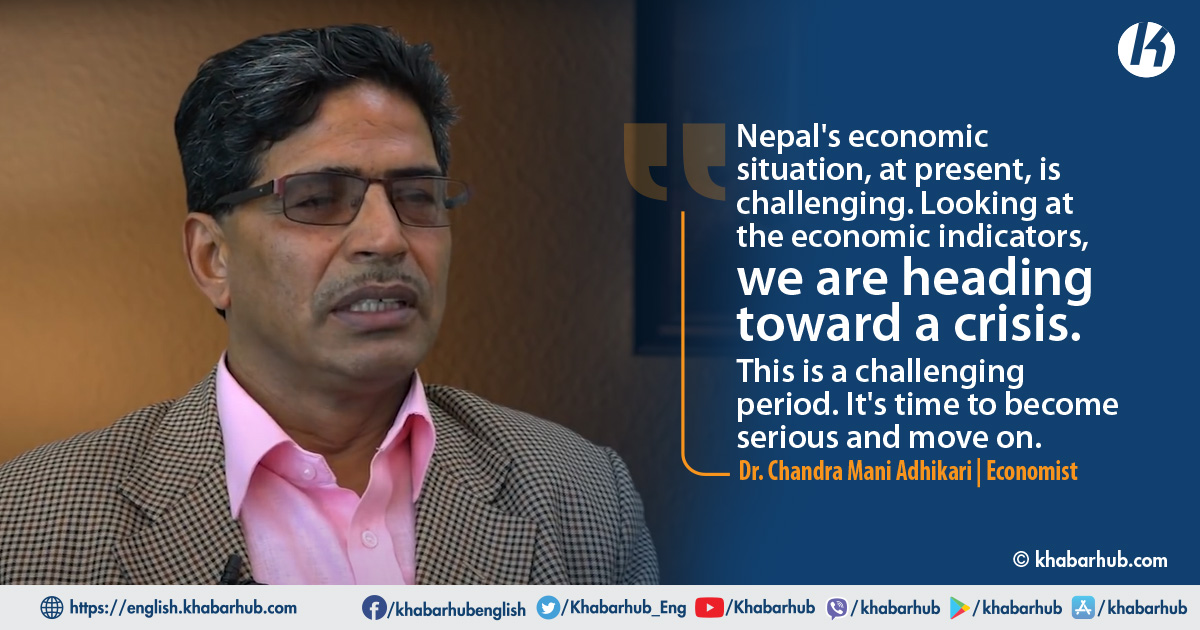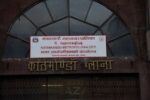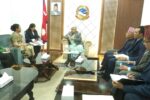Nepal’s economic indicators have been declining. Despite hopes of economic recovery in the wake of the Covid pandemic, trade deficits are rising sharply.
Along with rising petroleum prices, market prices have skyrocketed. The burden of foreign debt is increasing. As a result, Nepal’s economy as a whole is under pressure. Nepal’s annual budget is 16 trillion.
However, economists have expressed concern that the economy has reached a depressing state with a trade deficit of Rs 11.5 trillion in just seven months. Economists warn that Nepal could undergo the situation in Sri Lanka if it fails to increase its foreign exchange reserves.
Khabarhub’s Laxman Phuyal interviewed economist, Dr. Chandra Mani Adhikari, on the current economic situation of Nepal, steps to be taken by the government for the improvement of the economy, solutions to the economic crisis, and other economic issues. Excerpts:
How do you analyze the country’s current economic situation?
At present, Nepal’s economic situation is challenging. Looking at the economic indicators, we are facing a crisis. However, this does not mean that we are already in a crisis. The time is challenging.
What do you say about the fact that even though Nepal has tightened its imports, the economic situation has not improved and the dollar reserves have not increased?
Tightening imports is squeezing the economy. Unnecessary spending should be cut to increase the dollar’s foreign exchange reserves. Foreign exchange reserves need to be augmented. That should not be hindered. The source of foreign exchange is export. We have not been able to increase exports.
Remittances are money brought in by those going for foreign employment. Even that money has decreased. Foreign investors have shown interest to invest in Nepal.
Projects have been approved. However, the investment has not come, and projects have not been implemented. Foreign aid is one of our sources of income, and it is linked to the budget. Budget costs are linked to programs and projects.
If the projects in the budget are implemented on time, foreign resources will come through it. The money comes either by asking for funding or directly from a budget source, provided by a foreign donor nation or a development partner.
If it is not spent, they will not pay us. That is obtained on the basis of cost. Our money has gone abroad for consumables. As a result, foreign exchange reserves have declined more than ever before. So we have to move forward with serious consideration.
What options can the government take in this situation?
The remittance inflow rate has decreased. The government should find out the reason why it has declined. It’s high time the government pondered as to why remittances decreased when the number of Nepali youths going abroad has not declined.
The wages rate has not decreased. The government should look for loopholes in those resources and why the money is not coming in.
We need to find out why the remittance rate for foreign employment has come down. What could be the reason for the decline? In what businesses was the money spent? The money may have been traded illegally. Crypto-currency or hundi transactions may have increased.
If this is found out then we should inform the recipient family by setting up a remittance facility by giving more facility than the money given by the hundi.
We need to make sure that transactions are done in a more secure way than through hundi. Senders should be informed about the foreign exchange reserves through various institutions and channels.
It is necessary to explain to the common people that if there is no foreign exchange reserve one cannot buy anything even if you have money.
The government should make arrangements to send money to the villages through banks in the same way that money changers send money to remote areas.
The government should also identify the person and encourage him to do business with the bank. Also, emphasis has to be laid on the tourism business.
It is necessary to make such plans to increase the number of foreign tourists. Tourists from Europe and America are less likely to come.
There was a pandemic before. Now there is an oil crisis. Therefore, it is unlikely that foreign tourists would come due to an increase in travel expenses.
Alternatively, tourists from India, China and Thailand can be increased. If the projects built with foreign aid are accelerated, then foreign aid will be received from there. The alternative is to clean up the sources. More foreign exchange can be obtained by removing barriers.
The Nepal Rastra Bank seems to control imports. This work had to be done much earlier. When the crisis starts, people will be terrified.
The government should control the import of junk food. Government should encourage people to drink rather than energy drinks.
However, there should be no shortage of food, medicine and other raw materials. There should be no shortage of machines required for the project.
There should be no shortage of minimum petroleum products. The government needs to focus on the essentials and control the cosmetic types.
To increase monetary reserves, the use of electricity should be increased by reducing the import of gas. Gas should be replaced by increasing the use of electricity by 90 percent.
The government should be able to provide cheap electricity to the people. By giving priority to electric vehicles, some reductions can be made in petroleum products.
What is your take on some experts’ views that Nepal is treading on a path similar to Sri Lanka?
Yes, our economy is in crisis. Nepal has already reached the yellow zone from the gray area. We were never in the green zone. Why did Sri Lanka go into crisis? Where is the weakness? What is the policy weakness? The structure and condition of the economy need to be analyzed to see what events have affected it. That should be evaluated.
Tourism accounts for 17 percent of Sri Lanka’s GDP. It seems that the political leadership has not shown maturity in spending, public works, and tax coordination.
Some decisions seem to have been made without analyzing the situation and the fall-outs. Traditionally the economy of Sri Lanka depended on rubber, coconut, and minerals.
There was less investment in agriculture. From 1983 to 2009, economic growth was between 4 percent and 10 percent. South Asian countries had better economies than others. The per capita income for 2019 was Rs 14,000.
The government does not seem to pay much attention to the deteriorating economy, nor do economists appear in the cabinet. What impact do you see?
What is politics for? Politics is for development, it is for attracting foreign investment, and it is for health and education. Politics should not be for power and money.
We have seen that kind of character here in Nepal. There are people who have evaded tax. The nexus between political leaders and brokers (middlemen) seems to be strong. Elections are also becoming more expensive.
Due to the high cost of elections, good people are unlikely to be candidates. Government bodies do not seem to be serious in times of economic crisis. That should not be the case now. The government should take NRB’s suggestion seriously.
It is said that the amount coming from abroad has decreased as the government has made the banking system cumbersome. How true is that?
Money coming in from abroad is not very cumbersome. The money coming from foreign employment is not brought by a single person.
Their main goal is to raise a family and remit their foreign exchange earnings. The big business banks are running on the mentality that profits should not decrease no matter how much the nation is in crisis.
It is natural for the youth of poor and middle-class families to ask for money. When doing bank transactions, it is necessary to make arrangements for the money to reach the hands at a higher rate than the money that can be easily received even in remote areas.
The state should regulate the flow of money. The government should remove the inconvenient provision of sending money. The government benefits if the government pays more than the market price.
Youths have gone abroad for employment. How long will Nepal’s economy run on remittances sent by these youths?
Instead of selling products, we have been selling labor. There was no state presence in the post-2052 BS conflict, and there was no working environment.
So the youths flew abroad for employment. Even after 2062 BS, the number of people going abroad seems to have increased.
After 2063 BS, the number of youths going abroad should have decreased. The government should have provided employment to these youths.
The land in the villages should have been cultivated. Labor had to be converted into production. We should understand that the country will not prosper from foreign income.
Plans should be made to convert labor into production. We need to combine the manpower, hydropower and mineral resources in Nepal to produce what we need.
What policies and programs are needed to mobilize Nepal’s manpower?
First of all, a strategy should be formulated for the production of manpower required for employment. We need to see what would be the economic model of the country in 15 years?
What kind of manpower, technical and non-technical manpower is required while developing? How much research manpower is needed?
The manpower required in different areas should be assessed. Educational institutions should be opened on that basis. The teaching method should be promoted accordingly.
What should Nepal do to reduce debt?
The revenue raised in our country has gone to all the administrative expenses. The size of the cabinet and the advisors should be reduced.
The duration of labor should be increased from 8 hours to 10 hours. Working hours should be increased. By increasing working hours, managerial and general expenses should be reduced.
We must use our resources for development. While constructing a project, priority should be given to those who create employment and produce. With such a plan, the country can get rid of the debt burden.









Comment